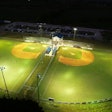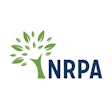The Washington State Department of Health has released the results of an investigation wherein it examined the relationship between playing soccer on synthetic turf and the early development of cancer. The DOH partnered with researchers from the University of Washington School of Public Health to investigate a list, compiled by the UW women’s assistant head soccer coach, of 53 Washington residents who both played soccer and developed cancer between the mid- ‘90s and the year 2016.
The main objective of the study was to determine whether or not soccer players who spent significant time in contact with synthetic turf reported higher cancer rates than the general population. They found that they did not.
“Based on what we know today,” the study reads, “the Washington State Department of Health recommends that people who enjoy soccer continue to play regardless of the type of field surface. Our recommendation is based on our investigation and the available research on crumb rubber. Assurance of the safety of artificial turf with crumb rubber are limited by the lack of adequate information on potential toxicity and exposure.”
The study does not make any claims that rubber infill does not contain harmful chemicals; however, their findings show that the low level of exposure to carcinogenic chemicals through playing on synthetic turf is not enough to pose a significant health risk.
The study encourages those who are still concerned about the harmful effects to take measures such as washing hands between playing on the fields and eating, and being sure not to swallow any rubber crumbs that accidentally make their way into the mouth during play. The takeaway here is: it's safe to play soccer on synthetic turf, but best not eat it.
Related: Turf Industry Bolsters Defense of Crumb Rubber Safety





































